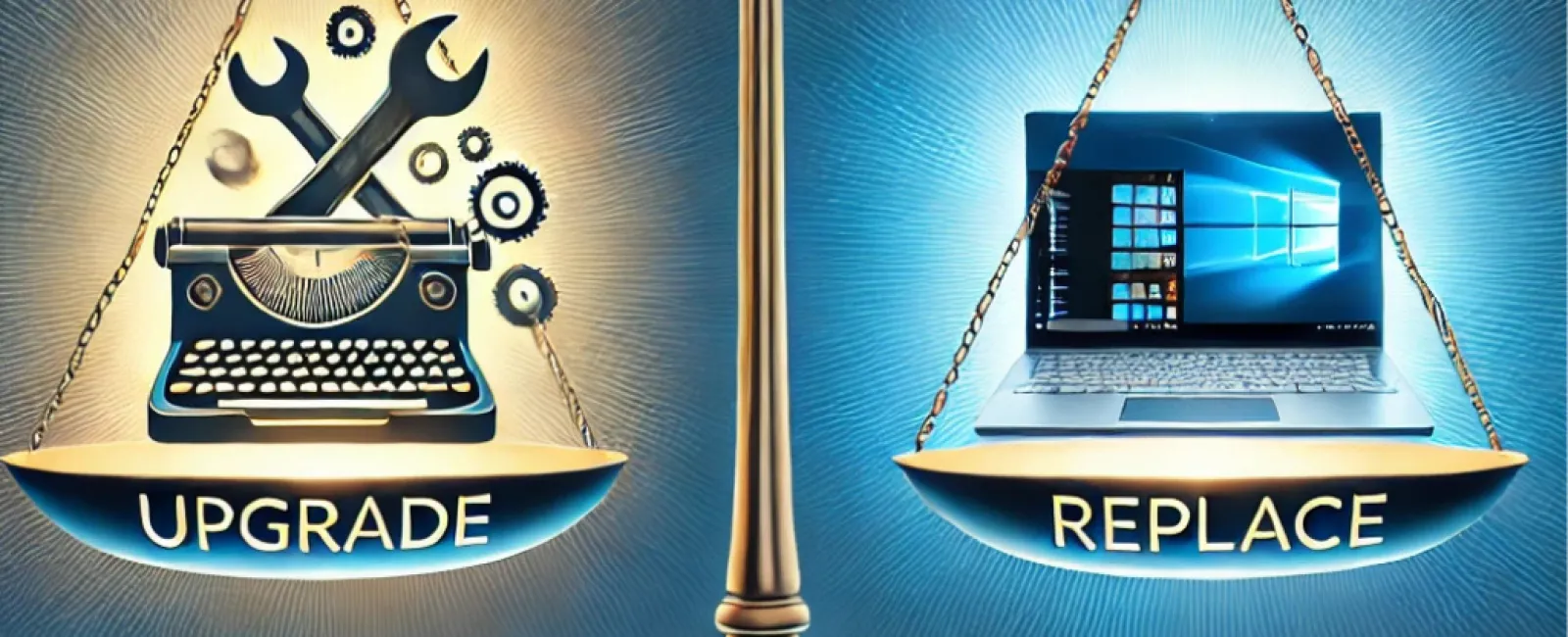February 17, 2025
The end of support for Windows 10 is on the horizon, officially concluding in October 2025. This presents a crucial decision point for both businesses and individuals still utilizing this operating system. The central question is: Should you upgrade your current devices to Windows 11, or is it time for a complete replacement?
Here's a guide to assist you in making an informed choice based on your requirements, budget, and objectives.
Step 1: Verify Compatibility
Start by checking if your existing hardware meets the requirements for Windows 11. Microsoft has established stringent criteria to ensure the new OS operates efficiently and securely. Essential requirements include:
- A compatible 64-bit processor (1 GHz or faster with at least 2 cores)
- 4 GB of RAM (8 GB or more is recommended for optimal performance)
- 64 GB of storage
- TPM version 2.0 (Trusted Platform Module)
How to Check:
- Utilize Microsoft's PC Health Check tool for a quick compatibility assessment.
- If necessary, manually review your device's specifications.
Outcome:
If your system does not meet the compatibility criteria, you will need to either upgrade your hardware or consider replacing it.
Step 2: Assess the Age of Your Devices
How old is your current hardware? Devices older than five years often exhibit slower performance and may not meet Windows 11's requirements.
Reasons to Consider Replacing Older Devices:
- They are likely approaching the end of their life cycle.
- Upgrading components (like RAM or storage) may not yield significant performance gains.
- They carry higher security risks due to outdated firmware and hardware vulnerabilities.
Step 3: Evaluate Your Performance Needs
Does your current hardware adequately support your daily tasks? Consider the following:
- Speed: Are your devices hindering your productivity during crucial tasks?
- Reliability: Do you frequently encounter crashes or malfunctions?
- Scalability: Will your current hardware manage future software updates and increased workloads?
When to Upgrade:
If your devices are still performing well, upgrading to Windows 11 may be the most economical option.
When to Replace:
If performance issues are affecting your productivity, investing in new hardware can save you money over time by reducing downtime and inefficiencies.
Step 4: Analyze the Costs
Budget considerations are essential when deciding whether to upgrade or replace.
Upgrading Existing Devices:
- Lower initial costs (if compatible).
- Potential additional expenses for component upgrades (e.g., increasing RAM).
Replacing Devices:
- Higher upfront costs but better long-term value.
- Newer hardware designed to leverage Windows 11's features and security enhancements.
Step 5: Think About Future-Proofing
Newer devices come equipped with cutting-edge technology, providing:
- Enhanced security features, including hardware-based encryption.
- Faster processing speeds and improved energy efficiency.
- Better compatibility with modern applications and peripherals.
Investing in replacement devices now can position your business for future growth and innovation, ensuring your systems remain efficient for years to come.
Pro Tip: Consult an IT Professional
If you're still uncertain, collaborating with an IT provider can simplify your decision-making. They can:
- Evaluate your current setup.
- Advise on whether to upgrade or replace based on your specific needs.
- Manage the transition to minimize downtime and disruption.
Take The Next Step
Deciding whether to upgrade or replace your devices
doesn't have to be overwhelming. Start with a FREE Consult to
evaluate your systems and get personalized recommendations for a smooth
transition to Windows 11.
Click here or give us a call at 954-327-1001 to schedule your FREE Consult today!
Don't wait until the October 2025 deadline - get ahead
of the game and ensure your business is ready for what's next.





